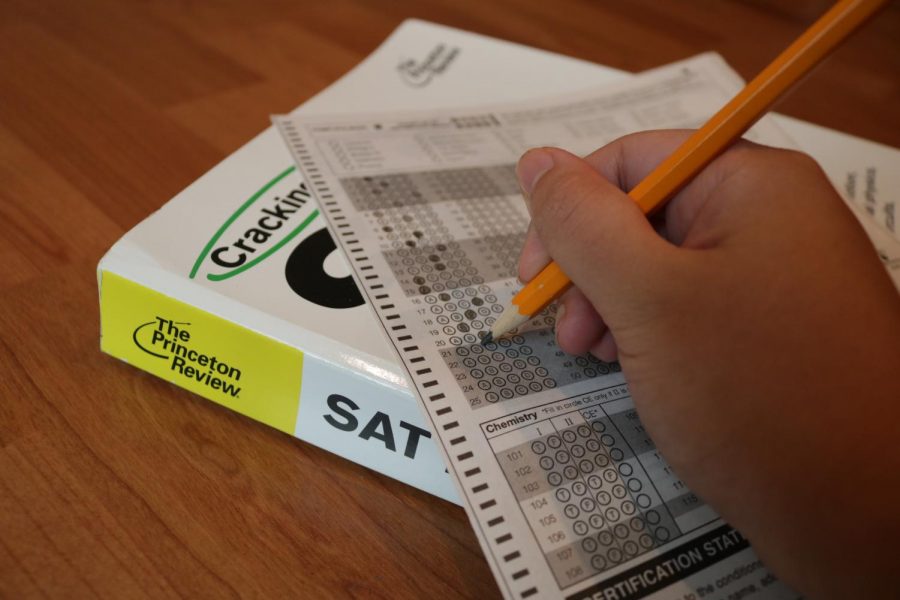College Board: Stop Landscape now
Admist the pandemic, College Board has attempted to change regulations and rules regarding the SAT testing environment.
October 28, 2019
For most students, a portion of their college application profile is defined by numbers, such as their GPAs and standardized test scores. The other parts—the essays, extracurriculars, and recommendations—allow the college admissions officers to assess each applicant holistically. A new controversy has arisen from the recently enacted program that provides admissions officers another number to consider: The Landscape.
In simple terms, this score is calculated out of one hundred points based on a formula that considers a variety of influential factors on the student’s home and school life, such as neighborhood crime rates, poverty levels and senior class sizes. While this new adversity score brings many benefits to students who are less well off, the score unfairly treats something which should be purely academic as something influenced by factors the student cannot control. The SAT is a merit-based test designed just to showcase a student’s academic achievement.
College Board’s area of expertise as a nonprofit organization is to write and administer standardized tests, not to analyze a student’s background. The decision on what factors should be taken into consideration during the application process should be decided by the college admission officers themselves, not by an unnecessary third party. College Board as a score-reporting program should only be responsible for offering colleges a means to assess a student’s academic proficiency.
Additionally, a student should never be defined by a single number. Every single college applicant’s situation is different and should be thoroughly and individually considered by the admissions officer. Because the Landscape oversimplifies this process, this system could make officers lazy when examining an applicant’s socioeconomic situation. Consequently, some students may not be receiving the same consideration, possibly ruining their chances of being accepted into their dream school.
While the factors included in the formula provide some insight into a student’s background, so much more plays a role in a student’s academic success. Implementing the adversity scores system only strengthens the false presumption that someone’s socioeconomic background is the greatest factor to their academic success.
Some may argue that the score can minimize the impact a student’s economic background has on their scores, but the harsh truth is that those who are determined to ensure their kids earn high SAT scores will always find ways to game the system. Earlier, recent college scandals show that the wealthy will be willing to break rules to do so. This may result in strangely timed address changes or the enrollment of kids in schools in high-adversity-score areas. In other words, this new scoring system at the end of the day will be ineffective in illustrating a student’s privilege.
In the end, the College Board is delving into the messy realm of affirmative action with no knowledge of Landscape’s effectiveness. Admissions officers, who have a thoroughly holistic system for determining a student’s admission, should continue to be the group to parse through student’s socioeconomic background and other application materials.


